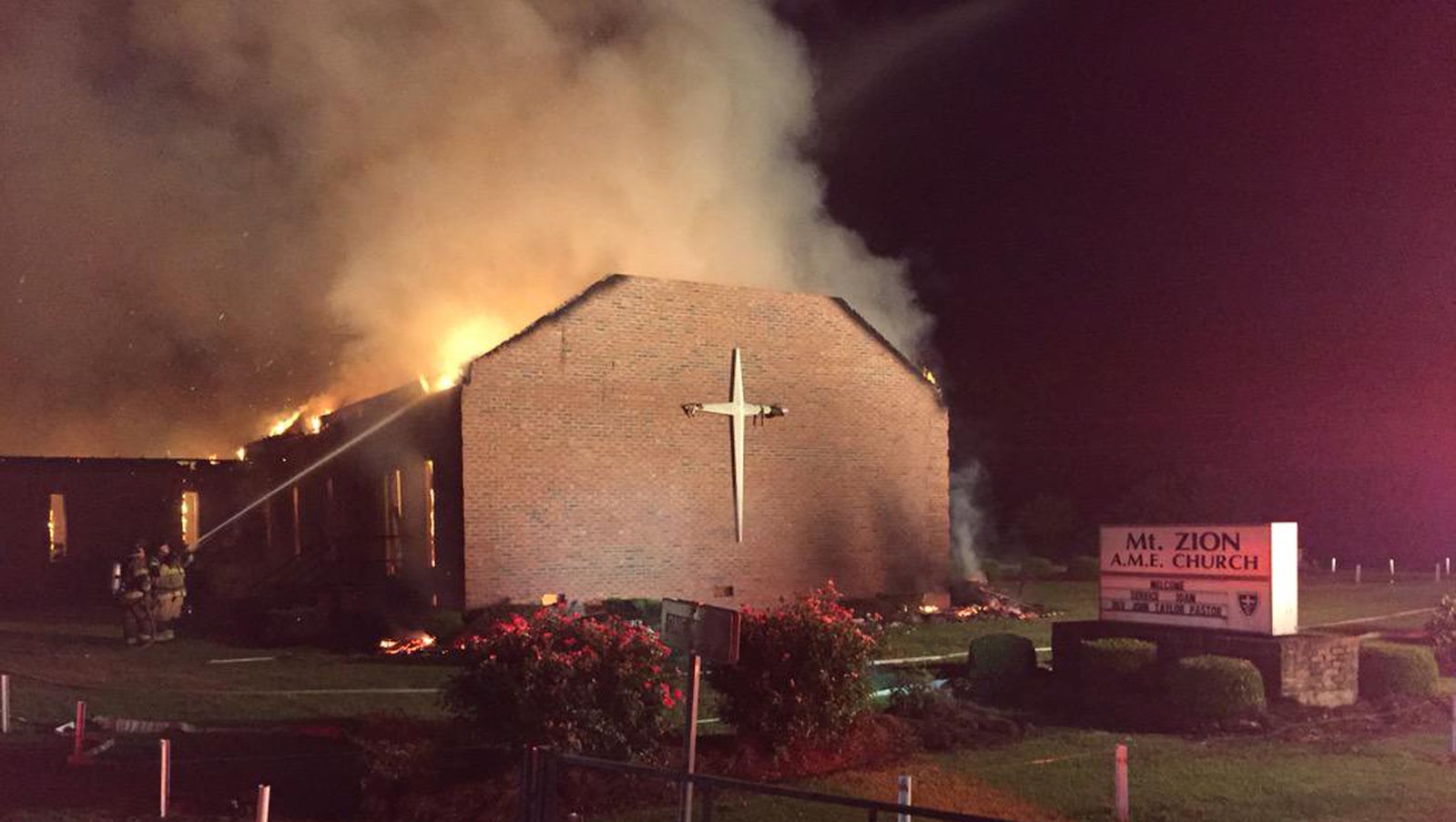Black churches are burning while the US declares victory over a flag
The debate over the Confederate flag has ignited the US, leading to an uprising of public opinion calling for its removal from public places and government buildings across the South. In response, Alabama has removed the Confederate flag from its statehouse, and Mississippi and South Carolina may do the same in the near future. While commendable, and necessary, this seeming progress in the fight for racial equality is largely a distraction and has even created a rallying point for members of the Ku Klux Klan.


The debate over the Confederate flag has ignited the US, leading to an uprising of public opinion calling for its removal from public places and government buildings across the South. In response, Alabama has removed the Confederate flag from its statehouse, and Mississippi and South Carolina may do the same in the near future. While commendable, and necessary, this seeming progress in the fight for racial equality is largely a distraction and has even created a rallying point for members of the Ku Klux Klan.
The fact remains, flags are symbols—and even when they symbolize hatred and division, their removal offers little protection from actual violence.
As of last night, seven predominantly black churches in the South have burned this week, directly following Dylann Roof’s murderous attack at Emanuel AME Church in Charleston, South Carolina and the Supreme Court’s decision to throw back the legality of displaying the Confederate flag to individual states. While only three of these fires have been confirmed as arson and none have been confirmed as hate crimes (investigations are on-going), their temporal proximity to the Charleston shootings, their concentration in the South, and their stature as predominantly black churches—institutions historically thought of as “rallying points” for the civil rights movement—combine to make it extremely plausible that at least some of the fires in this string of arsons were motivated by racism. Yet the media has largely failed to raise awareness of these fires, focusing instead on the symbolism and constitutionality of the Confederate flag.
In the early- to mid-90s, an outbreak of church fires ripped across the South in a similar manner. The arsons were referred to as “copycat acts” by investigators at the time. One such investigator described the arsonists in these cases as “people who were sympathetic, who heard about this and who took it upon themselves to take it to another level, another jurisdiction.”
While those engaging in conversation about the Confederate flag at the national level are largely against racial discrimination, it is important to remember that the loudest voices aren’t necessarily the most effective. Those inciting racial violence, like Roof, create more tangible impacts on society than the entire chorus of Confederate flag condemners.
That the ultimate decision as to whether or not the Confederate flag is outlawed is up to the elected officials in each state is unsatisfactory to many who believe Washington should ban it. While the First Amendment all but ensures this won’t happen, federal legislation—rather than law—could provide some protection from racism and racially motivated violence to the black population on whose behalf the battle against the flag is being waged.
Although not thought to be the result of arson, the blaze that consumed the Mount Zion AME church last night brought attention to the possible connection between the church fires this week and those of the past. Members of the KKK set the same church aflame in June of 1995.
On June 12th 1996, a year after the blaze, then-president Bill Clinton attended the dedication of the reconstructed Mount Zion AME church. “I expect to get a report on this every week until the job is done, and I want you to help us in getting the job done,” he told the crowd.
That fire was part of a large outbreak of racially motivated church fires across the South from 1995 to 1996 that led the House to approve legislation on June 18, 1996 “to make it easier for federal officials to prosecute those involved in church burnings and to make it a federal crime to damage religious property because of its ‘racial or ethnic character’,” the Washinton Post reported. Additionally, Clinton asked Congress to provide $12 million for investigations into church arsons and set up a task force to aid in their efficient and thorough handling. Following the passage of the bill into law, the arrest rate for arsons went up from 16% to 36.2%.
But the events of this week have shown that the job is not done.
Continued legislative action has been, and will continue to be, the real firepower in the fight for racial justice, which is a hard fact to swallow when America has a Congress that is paralyzed on most major issues. Arguing for the removal of the Confederate flag right now is a diversion of the nation’s attention away from calling for practical legislative action to correct racism and inequality–not to mention firearms regulations–while increasing racial tension in an already loaded atmosphere. And it gives racists around the US one more lost cause to rail for in the media. The Confederate flag needs to go, but not in a blaze of glory.